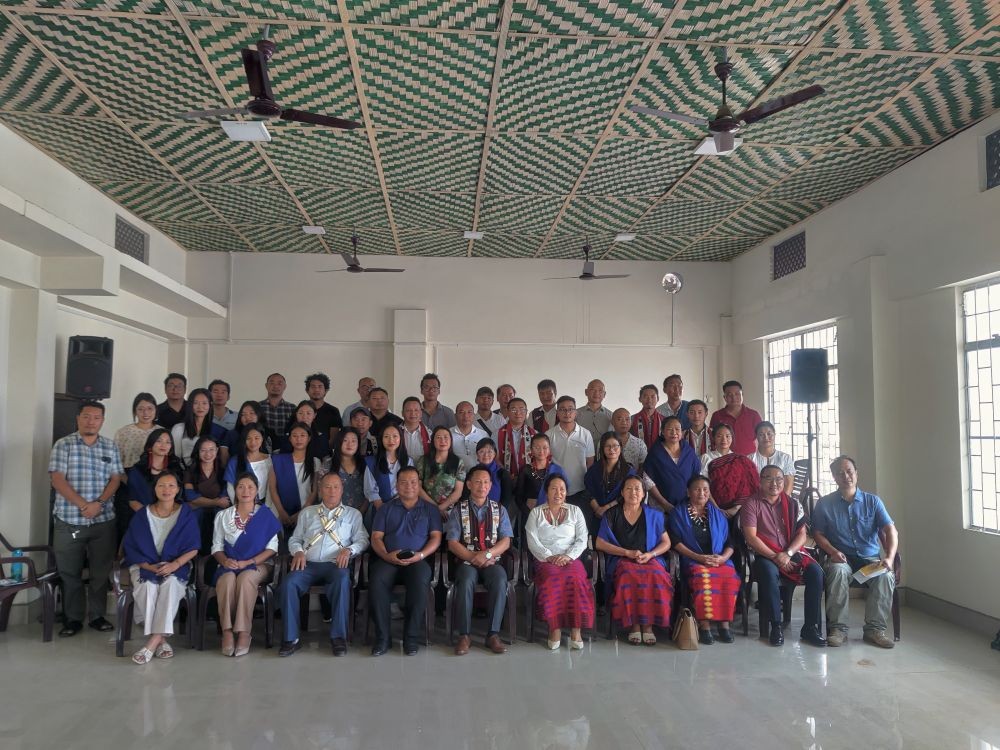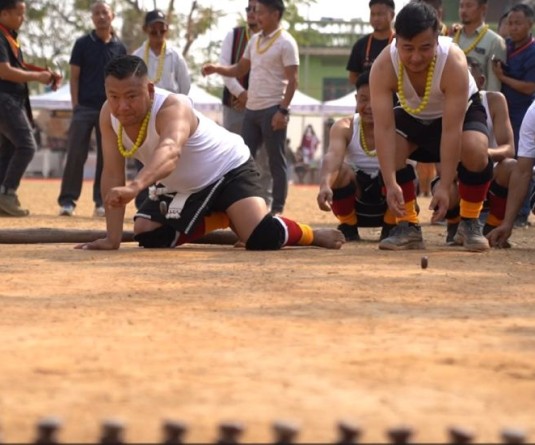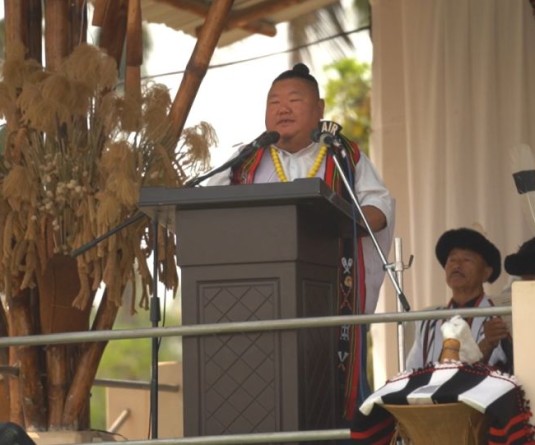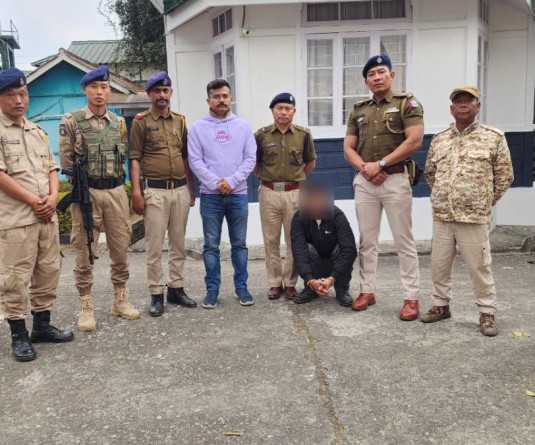Participants and others during the seminar for Ao language writers, poets, songwriters, and authors held at Aor Kilem, Mokokchung on April 26.

Writers pushed for standardization and revival
Morung Express News
Mokokchung | April 26
With the aim of strengthening the Ao language and maintaining uniformity in its spelling to standardize and nurture the language—at a time when it risks fading from daily use along with a vital part of the Ao people’s identity—the Ao Riju (Ao Academy) organized a seminar for Ao language writers, poets, songwriters, and authors at Aor Kilem, Mokokchung on April 26.
The seminar, part of a broader initiative to revitalize the language, featured I. Temjen Tzüdir, Publisher Head of Ao Riju, and Padmashree awardee T. Senka Ao as the main speakers.
Opening the session, Ao Riju General Secretary S. Wati Ozüküm stressed the growing problem of non-uniformity in Ao-language writing, where variations in spelling and usage have proliferated across published materials. Ozüküm emphasized the need for strict adherence to the official Ao dictionary, the approval of all books by Ao Riju, and the upcoming publication of a revised dictionary. He asserted that unapproved materials would no longer be accepted as reference texts in academic institutions — a move intended to protect the language’s integrity.
Speaking on the theme “Ao Oshi Tamentakdak Kimung aser Lirumedem” (The Foundation of the Ao Language and its Uniformity), I. Temjen Tzüdir outlined the deep-rooted historical and cultural factors that shaped the Ao language. He warned that language is not formed overnight but is a living heritage developed over generations — and if not properly safeguarded, it can be lost. “If we do not correct the inconsistencies today, the coming generations will suffer a greater loss,” he cautioned.
Tzüdir noted that the Ao language’s neglect until the 1980s had led to today’s fragmented usage. He pointed to the foundations of language rooted in traditional practices — attire, dormitories like the Arju or Tsuki, songs, poetry, and cultural expressions — emphasizing that discipline, patience, and collective responsibility are key to preserving uniformity.
Padmashree T. Senka Ao, speaking on “Kaket Zülutsü Yayim aser Nüngdakbatem” (Method and Procedure of Writing a Book), offered a candid reflection on the current state of Ao language literature. He highlighted how a lack of understanding of Ao traditions weakens a writer’s ability to write meaningfully in the language. “The Ao language lives within our traditions. If you do not know our culture, you cannot truly know our language,” he said.
Senka Ao also addressed structural shortcomings, noting that the Ao language is only formally available up to the Bachelor’s Honours level, mainly due to a lack of standardized resources like a comprehensive dictionary. He lamented the challenges young learners face, criticizing the overly complex language used in children’s books, which discourages students and leads many to opt for Alternative English instead.
“If the youth begin to hate the Ao language, it will mark the end of it,” he warned, underlining that language loss equates to a loss of national identity. “We will be a lost nation if we lose our language. If you have language, you have identity.”
He also urged caution in transliteration practices, stressing that misinterpretation could further fragment the language, and called for mutual respect and etiquette among all stakeholders to ensure the language’s survival.
The seminar also included an exhortation by Ao Senden President Marsanen Imsong and a discussion session moderated by Mokokchung Times Editor Limalenden Longkumer.






